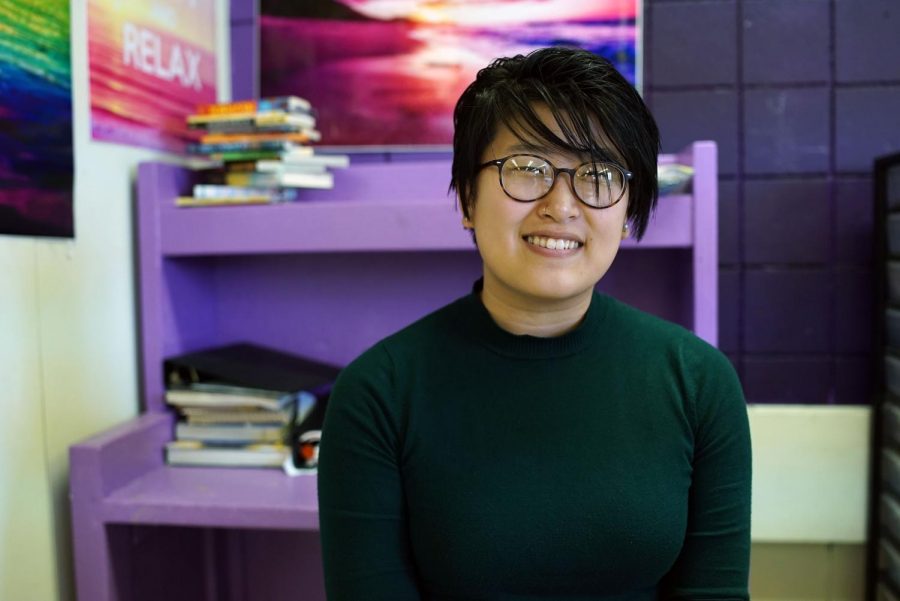Student activists look to continue #MeToo conversation
Seniors believe sexual assault education is lacking, but necessary
March 13, 2018
If it takes a village to raise a child, it takes a world to educate them on sexual assault.
Seniors Hannah Helper and Wesley Ehle share quite a bit – busy schedules, jobs within the Office of Student Life and an unrelenting ability to crack a good pun, just to name a few – but they also share a belief in the significance of raising a child up on the right side of history.
“I think people think their stories are now necessary tales that need to be told and something that’s really important in order to start a bigger conversation,” Hepler said. “We need to start it not so late in a young woman’s life, but early in childhood when you can explain it and step it down to their level and make them aware and fill them with knowledge so they’re not just kind of lost within that subject.”
Hepler, a psychology major, knows a little bit about relating to individuals half her age. As a mentor and intern at Gwen’s Girls, a nonprofit organization specializing in after-school programs for young women, she spends each Monday reaching toward opening the difficult conversations.
As president of Not on My Campus, a university-wide sexual assault prevention and awareness organization, Ehle may not work directly with younger men and women like Hepler, but he agrees that starting the conversation surrounding sexual assault – and starting it early – is especially important. He cites a lack of early education as one of his reasons for kick-starting the club.
“There’s a lack of education in middle and high school,” Ehle said. “When kids are taught sexual education, this [sexual assault] isn’t talked about with it. It’s just about how things work and what happens, but they don’t talk about sex ed for LGBT youth and they don’t explain what consent is.”
Both Hepler and Ehle admit to drawing inspiration within their student activist outlets from the 2017 #MeToo movement – a justice crusade for sexual assault survivors, that has origins dating all the way back to 2006.
“For me, the significance of the hashtag is women being able to be open about a specific experience they have, and to kind of come together as a collective to show the world or a certain population that they’ve had these experiences,” Hepler said. “They are valid experiences and not something to be overlooked.”
Ehle, outspoken and open about being a sexual assault survivor, sees the #MeToo movement as a union of unheard voices.
“What happened with #METOO was that all of a sudden, you found out it has happened to almost everyone you knew,” Ehle said. “Everyone had experienced it in some way, but no one was talking about it.”
Ehle knows he was silent for too long.
“This weight was lifted for me, because I had confided in a few people, but this sense of community sprang up overnight and it was really empowering,” Ehle said.
Ehle and Hepler both exhort this sense of community is of utmost importance to collections of survivors and non-survivors alike, although their communities look a little different. Hepler spends her time at her internship connecting this circle of young women, and Ehle spends time connecting proactive college age students to one another.
Hepler’s Monday includes trekking to the North Side to Gwen’s Girls facilities, where she mentors mostly African-American women ages seven to nine. The girls and their mentors spend time in “groups,” a conversation/sharing opportunity centric to current issues. Although they may be half her age, Hepler works to see the girls as equals, and has often found herself surprised by their insight into the world – and especially today’s political climate.
“It’s really kind of interesting to listen to their feedback about all of it, because they’re already so informed,” Hepler insisted. “I think now younger children are getting more involved in the world and they’re not kind of being seen or pushed away and blinded, or almost coddled from the world, they’re really just in it and are getting able to experience the things that happen in the world. I really like being able to hear how informed these young girls are.”
Issues discussed during this conversation time can gravitate anywhere from body image to racism to privilege – all the way to sexual assault, without exactly naming it, granted that there are young ears present. But that doesn’t stop Hepler from sharing the message, one that she says needs to be solidified early on.
“We bring it down to a level that children can understand and process for themselves,” Hepler said.
Ehle’s Monday looks a little different. Perhaps the acting major is in class, working on marketing for the Office of Student Life, or rewriting a script he’s working on for a new web series he’s writing. He still finds time to spearhead Not on My Campus as president, where his roles range from event planning to social media.
Ehle’s duty isn’t just to help survivors navigate life after, but to prevent sexual assault from happening in the first place. Not on My Campus employs a four-step pledge process that students can take. Not only does the pledge address survivors and positive coping methods, it also addresses prevention.
“Over 500 [have signed.] We encourage people to sign over and over and over again.”
In addition to the pledge, Ehle has been at the forefront of the organization of several events dedicated in their entirety to ending sexual assault. They tend to be holiday-themed and normally take place in a central location on campus. One of the last events was called, “A Costume is Not Consent” and happened right around Halloween.
As a survivor, Ehle says he can relate to students who have directly experienced sexual assault in a more personal way, but doesn’t use that as a crutch.
“That is a large reason of why I’m involved and why I do it, but it’s not really like – I don’t walk into a room and say, ‘I’ve been sexually assaulted and you should listen to me,’” Ehle said. “But I am passionate about starting that conversation and I wish that I didn’t have to deal with it alone and that someone had talked to me.”
And while the topic might be heavy, these activists are hopeful.
“I think that there’s so many problems with our culture and what exists within it, but it only takes one person to start changing a culture, and we have a lot of people changing that culture,” Ehle said. “I hope in the future we don’t ever allow people to get away with it.”



















